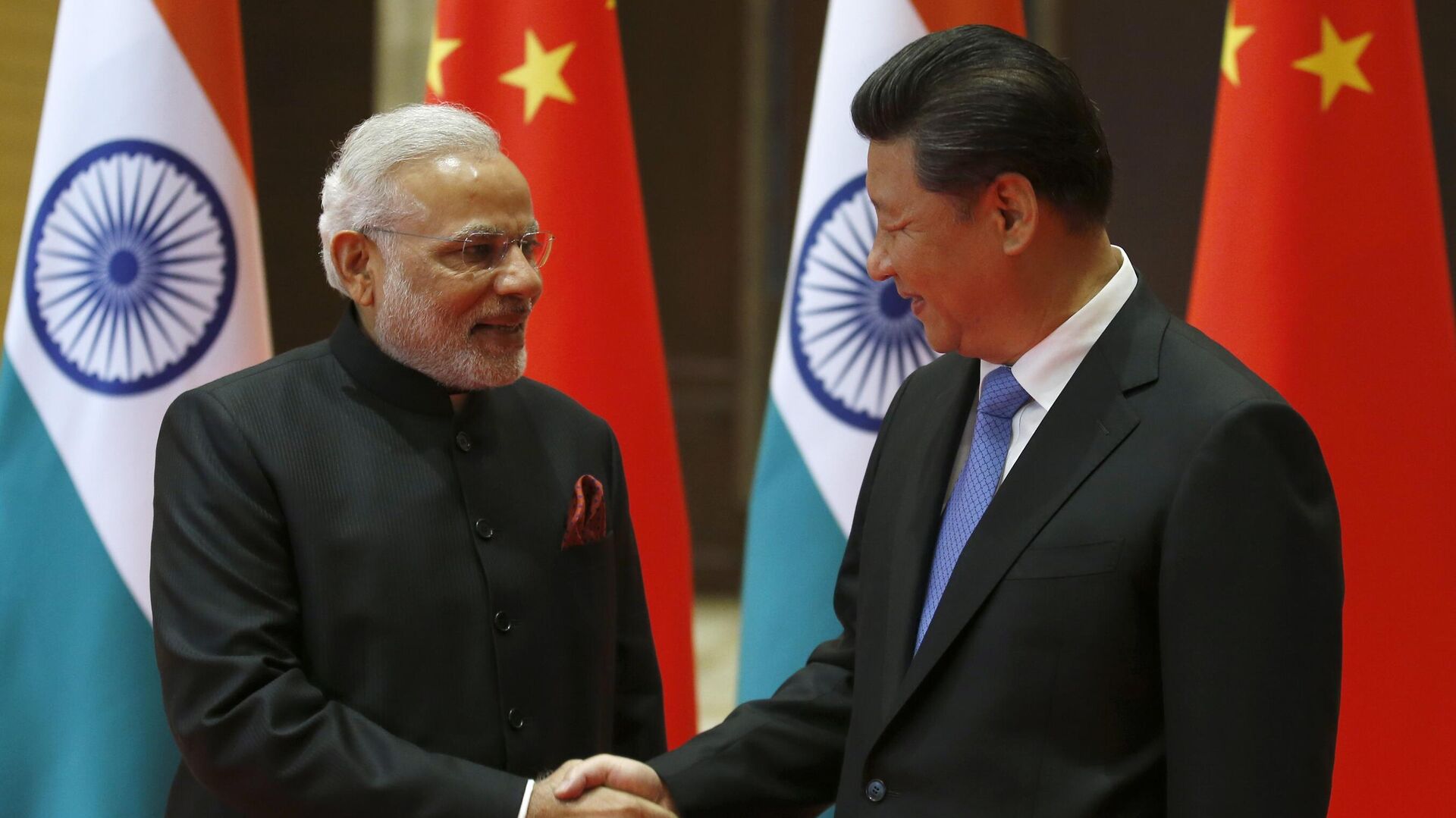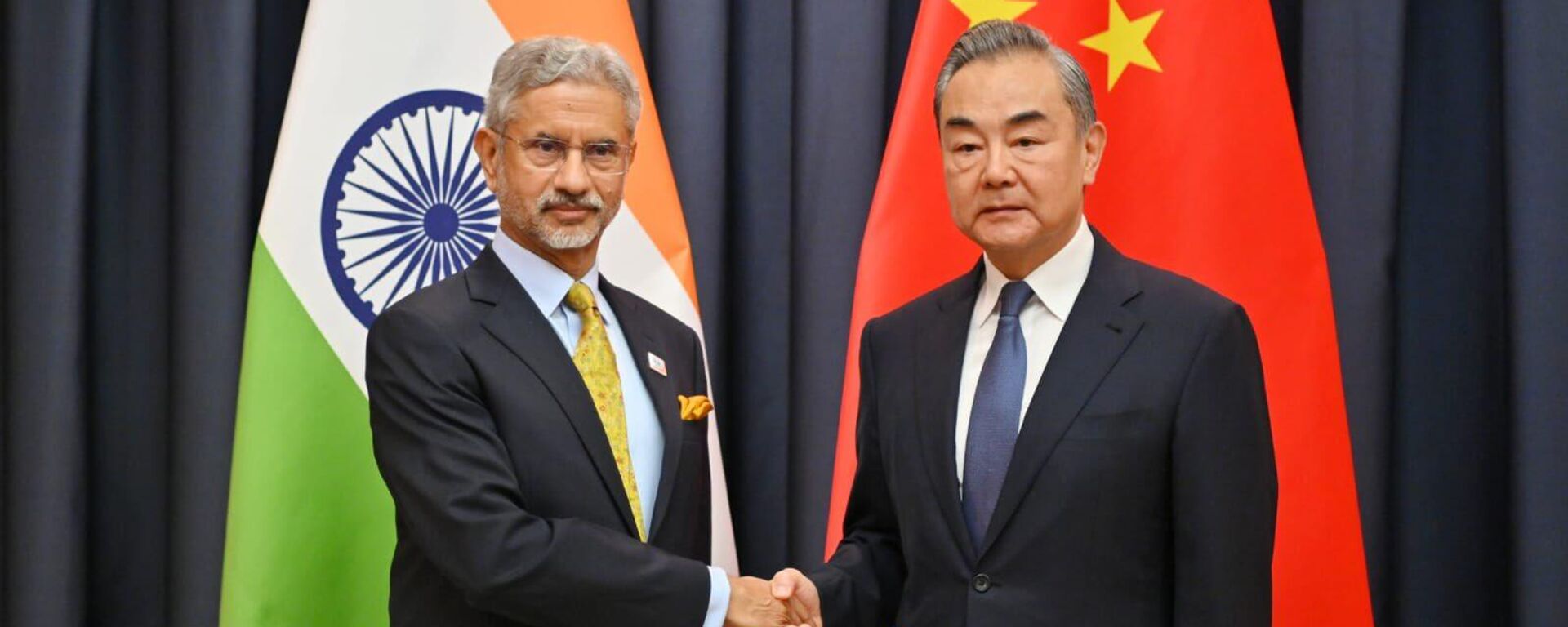https://sputniknews.in/20250829/timing-is-everything-what-makes-modis-china-visit-so-important-9678924.html
'Timing is Everything': What Makes Modi's China Visit So Important?
'Timing is Everything': What Makes Modi's China Visit So Important?
Sputnik India
On the sidelines of the Shanghai Cooperation Organisation (SCO) Summit in Tianjin on 31 August-1 September, PM Modi will hold bilateral meetings with President Xi and President Putin.
2025-08-29T20:25+0530
2025-08-29T20:25+0530
2025-08-29T20:25+0530
sputnik opinion
narendra modi
vladimir putin
donald trump
india
china
us
shanghai cooperation organisation (sco)
pahalgam terror attack
cross-border terrorism
https://cdn1.img.sputniknews.in/img/07e8/02/09/6495941_0:262:2709:1785_1920x0_80_0_0_368f05e9aee95c13e14248a00feab61d.jpg
Prime Minister Narendra Modi's attendance at the upcoming SCO Council of Heads of State (CHS) Meeting in Tianjin and his slated meetings with Russian and Chinese leaders definitely adds to India's "diplomatic profile" and may also bring about an "irreversible improvement" in Sino-India relations, leading China-watchers in India have told Sputnik India.Hemant Adlakha, Vice-Chairperson and Honorary Fellow at New Delhi's Institute of Chinese Studies (ICS), remarked that in diplomacy, "timing is everything".Ahead of his departure from New Delhi to Japan and China on Thursday, Prime Minister Modi described India as an "active and constructive member" of SCO. The PM also stressed that India remains committed to working with SCO states to "address shared challenges and deepen regional cooperation".The Indian scholar pointed out that Prime Minister Modi has attended only three of the last 10 SCO Summits in person, with his last attendance being at the Samarkand Summit in September 2022. He noted that the weaponization of trade and the maintaining reliable energy supply chains are likely to be discussed at the SCO CHS Meeting.Adlakha said that it is not a given that the Russia-India-China (RIC) trilateral mechanism would be revived at the SCO Summit, but didn't rule out the possibility of it happening either.So far, India has stayed firm on its stance of not buckling to the US demands of opening up to US farm imports or cutting down on purchases of Russian oil, despite intensifying criticism led by the likes of White House advisor Peter Navarro and US Treasury Secretary Scott Bessent. An additional 25% tariff on Indian imports entering the US kicked in this week, bringing the overall tariff burden on Indian imports to 50%, one of the highest rates globally.On the other hand, Sudheendra Kulkarni, a former aide to the late Indian Prime Minister Atal Bihari Vajpayee, said that the Modi-Xi meeting would provide a "much-needed reset in India-China relations with the potential for irreversible improvement".Kulkarni said that "good-neighbourliness" between India and China wasn't just beneficial for both the nations, but also served as a prerequisite for peace and stability in Asia and the world.Fully normalised bilateral relations, anchored in complete peace and tranquility on the border, will bring big gains to both countries, Kulkarni added, as he recalled that agreement at the Special Representative (SR)-level talks this month to kickstart the process of delimiting the Sino-India border to eventually resolve the boundary question.Kulkarni said that India may have a lot to gain by normalising ties with China, while noting that Foreign Minister Wang Yi had agreed to meet India's demand for fertilizers, rare earth elements (REE) and tunnel-boring machines (TBM) during his visit to New Delhi this month.The former PM advisor said that a better Sino-India understanding may also pave the way for improving India-Pakistan relations, given that Beijing fully understands New Delhi's concerns about cross-border terrorism.Kulkarni expressed his support for the revival of the RIC mechanism, the last leaders' meeting of which was held on the sidelines of the G20 Summit in Buenos Aires in 2018.Further, he said that the issue of US tariffs on India's purchases of Russian crude was likely to figure in talks between President Putin and PM Modi on 1 September.
https://sputniknews.in/20250818/india-china-discuss-global-economic-stability-amid-us-tariffs-9616245.html
india
china
us
Sputnik India
feedback.hindi@sputniknews.com
+74956456601
MIA „Rossiya Segodnya“
2025
Dhairya Maheshwari
https://cdn1.img.sputniknews.in/img/07e6/0c/13/138962_0:0:641:640_100x100_80_0_0_2cb44360dbcdf6d84bf4b299cd045917.jpg
Dhairya Maheshwari
https://cdn1.img.sputniknews.in/img/07e6/0c/13/138962_0:0:641:640_100x100_80_0_0_2cb44360dbcdf6d84bf4b299cd045917.jpg
News
en_IN
Sputnik India
feedback.hindi@sputniknews.com
+74956456601
MIA „Rossiya Segodnya“
Sputnik India
feedback.hindi@sputniknews.com
+74956456601
MIA „Rossiya Segodnya“
Dhairya Maheshwari
https://cdn1.img.sputniknews.in/img/07e6/0c/13/138962_0:0:641:640_100x100_80_0_0_2cb44360dbcdf6d84bf4b299cd045917.jpg
modi china visit, modi china, modi xi meeting, modi putin meeting, modi sco summit, modi news, modi trump, trump tariffs on india, trump tariffs india, trump news, trump china, trump tariff news, russian oil news, russian oil sanctions, india russia trade, russian oil exports
modi china visit, modi china, modi xi meeting, modi putin meeting, modi sco summit, modi news, modi trump, trump tariffs on india, trump tariffs india, trump news, trump china, trump tariff news, russian oil news, russian oil sanctions, india russia trade, russian oil exports
'Timing is Everything': What Makes Modi's China Visit So Important?
On the sidelines of the Shanghai Cooperation Organisation (SCO) Summit in Tianjin on 31 August-1 September, PM Modi will hold bilateral meetings with President Xi and President Putin.
Prime Minister Narendra Modi's attendance at the upcoming SCO Council of Heads of State (CHS) Meeting in Tianjin and his slated meetings with Russian and Chinese leaders definitely adds to India's "diplomatic profile" and may also bring about an "irreversible improvement" in Sino-India relations, leading China-watchers in India have told Sputnik India.
Hemant Adlakha, Vice-Chairperson and Honorary Fellow at New Delhi's Institute of Chinese Studies (ICS), remarked that in diplomacy, "timing is everything".
"Coming of the SCO meet against the backdrop of
rising US-India unpleasantness under the mounting pressure caused by the imposed high tariffs by the US, Modi’s clear and categorical decision to attend the Tianjin meet does add to India’s diplomatic profile in the rapidly changing regional, global geostrategic environment," Adlakha said.
Ahead of his departure from New Delhi to Japan and China on Thursday, Prime Minister Modi described India as an "active and constructive member" of SCO. The PM also stressed that India remains committed to working with SCO states to "address shared challenges and deepen regional cooperation".
While Adlakha said that it still needs to be watched whether the positive diplomatic overtures between India and China could be described as a "thaw" or a "reset", he noted that Beijing appeared to be enthusiastic about the diplomatic openings with India.
The Indian scholar pointed out that Prime Minister Modi has attended only three of the last 10 SCO Summits in person, with his last attendance being at the Samarkand Summit in September 2022. He noted that the weaponization of trade and the maintaining reliable energy supply chains are likely to be discussed at the SCO CHS Meeting.
Adlakha said that it is not a given that the Russia-India-China (RIC) trilateral mechanism would be revived at the SCO Summit, but didn't rule out the possibility of it happening either.
So far, India has
stayed firm on its stance of not buckling to the US demands of opening up to US farm imports or cutting down on purchases of Russian oil, despite intensifying criticism led by the likes of White House advisor Peter Navarro and US Treasury Secretary Scott Bessent. An additional 25% tariff on Indian imports entering the US kicked in this week, bringing the overall tariff burden on Indian imports to 50%, one of the highest rates globally.
On the other hand, Sudheendra Kulkarni, a former aide to the late Indian Prime Minister Atal Bihari Vajpayee, said that the Modi-Xi meeting would provide a "much-needed reset in India-China relations with the potential for irreversible improvement".
"His (PM Modi's) efforts to mend ties with China should not be seen as an opportunistic response to the current downturn in India-US relations," Kulkarni said ahead of the leaders' meeting, their second bilateral engagement since the 21 October disengagement pact and the previous meeting on the sidelines of the BRICS Summit in Kazan.
Kulkarni said that "good-neighbourliness" between India and China wasn't just beneficial for both the nations, but also served as a prerequisite for peace and stability in Asia and the world.
"Now that Prime Minister Modi and President Xi Jinping have, through strenuous efforts, managed to put the tragic Galwan Valley episode behind them, their meeting on the sidelines of the SCO Summit provides an opportunity to fully normalise bilateral relations," the former PM aide stated.
Fully normalised bilateral relations, anchored in complete peace and tranquility on the border, will bring big gains to both countries, Kulkarni added, as he recalled that agreement at the Special Representative (SR)-level talks this month to kickstart the process of delimiting the Sino-India border to eventually resolve the boundary question.
Kulkarni said that India may have a lot to gain by normalising ties with China, while noting that Foreign Minister Wang Yi had
agreed to meet India's demand for fertilizers, rare earth elements (REE) and tunnel-boring machines (TBM) during his visit to New Delhi this month.
"India will gain in terms of Chinese investments and technology cooperation in renewable energy, battery systems, EVs, semiconductors, infrastructure development and agriculture. India can begin to attract a large number of Chinese tourists," Kulkarni said.
The former PM advisor said that a better Sino-India understanding may also pave the way for improving India-Pakistan relations, given that Beijing fully understands New Delhi's concerns about cross-border terrorism.
Kulkarni expressed his support for the revival of the RIC mechanism, the last leaders' meeting of which was held on the sidelines of the G20 Summit in Buenos Aires in 2018.
Further, he said that the issue of US tariffs on India's purchases of Russian crude was likely to figure in talks between President Putin and PM Modi on 1 September.
"But India is not going to stop buying Russian oil to placate any foreign power," Kulkarni concluded.



